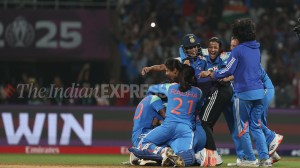The Triumph of Size 12
The backlash against fashion images of the super thin is giving larger models a major career boost
When he met Crystal Renn for the first time,Stephen Gan,the influential creative director of fashion magazines like Harpers Bazaar and Visionaire,had the same reaction as virtually everyone who comes face to face with the industrys reigning plus-size model.
Youre not big, Gan said.
Renn23 years old,5 feet 9 inches tall,bra 38C,waist 30,hips 42,hair and eyes brownis a size 12. Gan half expected Mae West. Photographs in the international editions of Bazaar and Vogue had so emphasised Renns natural curves,and in some cases exaggerated them with lighting and digital manipulation,that he imagined her to be much larger,with the personality of a vixen,rather than the breathtaking but normal young woman.
Renn has heard this before. So-called plus-size models are constantly being told by editors and designers that they dont look fat,which is meant to be a compliment,Renn said in her recently published memoir,Hungry. Still,it does become tiresome for a model who aspires to wrest fragrance and beauty contracts from women who are size 2 or smaller,she said. Its simply bizarre that normal is the new overweight, she wrote.
Now magazines are making a point to include more diverse body types,especially those with fuller figures. The backlash against skinny models has given Renns career a major boost. She is,from a high-fashion standpoint,the most successful model in the plus-size division of Ford Models,said her agent,Gary Dakin. In the February issue of Glamour,she appears in an eight-page fashion feature. And she was described by Gan as the inspiration for making the new spring preview issue of V Magazine a size issue, including several portfolios starring plus-size models.
The issue,whose images were circulated online two weeks ago,has sparked countless discussions about broadening the cast of models. Some who commented on the Web said that they were pleased to see models with bodies that more women could relate to. But others complained that the images were exploitative,that they glorified obesity or were a publicity stunt.
As a youngster,when a modeling scout told her she had potential provided she lose weight,Renn saw a means of escape from small-town life. On a regimen of Diet Coke,she lost 28 pounds in three months. By 2002,when she moved to New York at age 15,she weighed 95 pounds and had lost more than 42 per cent of her body weight. On her first day in the city,she landed a shoot for Seventeen. When her book was published last fall,Renn said,she felt she was able to close the door on a period of her life defined by hatred of her body.
The rub is that many plus-size models complain that their images are often retouched as routinely as celebrity coversonly to make them look bigger.
In her book,she describes this as the fetishisation of fat. When designers and editors choose one fat girl to salivate over,Im not sure how much it advances the cause of using girls of all sizes in a magazine, she wrote.



- 01
- 02
- 03
- 04
- 05




























